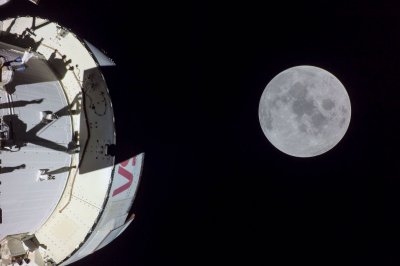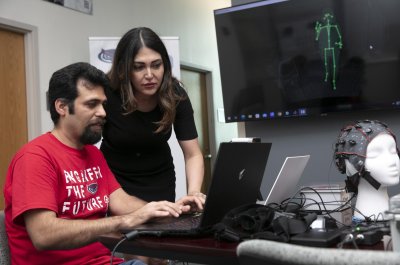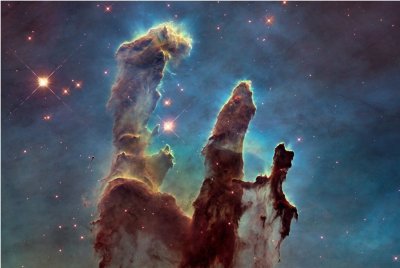Topic: Albert Einstein
Quotes
Science without religion is lame, religion without science is blind
The almanac Mar 14, 2009
In my view it is much better, both morally and practically, to attempt to bring about a state of affairs in which the Russians, out of pure self-interest, find it preferable to give up their separatist position
Einstein letters up for sale Oct 11, 2008
Obese people have enough issues to deal with without being demonized for their impact on the environment. The truth is all people are an environmental burden
Claim: Obese people cause global warming May 17, 2008
Science without religion is lame, religion without science is blind
The almanac Mar 14, 2008
Science without religion is lame, religion without science is blind
The Almanac Mar 14, 2007
Albert Einstein ( /ˈælbərt ˈaɪnstaɪn/; German: ( listen); 14 March 1879 – 18 April 1955) was a German-born theoretical physicist who developed the theory of general relativity, effecting a revolution in physics. For this achievement, Einstein is often regarded as the father of modern physics, and one of the most prolific intellects in human history. He received the 1921 Nobel Prize in Physics "for his services to theoretical physics, and especially for his discovery of the law of the photoelectric effect". The latter was pivotal in establishing quantum theory within physics.
Near the beginning of his career, Einstein thought that Newtonian mechanics was no longer enough to reconcile the laws of classical mechanics with the laws of the electromagnetic field. This led to the development of his special theory of relativity. He realized, however, that the principle of relativity could also be extended to gravitational fields, and with his subsequent theory of gravitation in 1916, he published a paper on the general theory of relativity. He continued to deal with problems of statistical mechanics and quantum theory, which led to his explanations of particle theory and the motion of molecules. He also investigated the thermal properties of light which laid the foundation of the photon theory of light. In 1917, Einstein applied the general theory of relativity to model the structure of the universe as a whole.
He was visiting the United States when Adolf Hitler came to power in 1933, and did not go back to Germany, where he had been a professor at the Berlin Academy of Sciences. He settled in the U.S., becoming a citizen in 1940. On the eve of World War II, he helped alert President Franklin D. Roosevelt that Germany might be developing an atomic weapon, and recommended that the U.S. begin similar research; this eventually led to what would become the Manhattan Project. Einstein was in support of defending the Allied forces, but largely denounced using the new discovery of nuclear fission as a weapon. Later, together with Bertrand Russell, Einstein signed the Russell–Einstein Manifesto, which highlighted the danger of nuclear weapons. Einstein taught physics at the Institute for Advanced Study at Princeton, New Jersey, until his death in 1955.
It uses material from the Wikipedia article "Albert Einstein."














